中共中央关于党的百年奋斗重大成就和历史经验的决议(双语全文)
新华网 2021-11-18 09:20

三、进行改革开放和社会主义现代化建设
III. Reform, Opening Up, and Socialist Modernization
改革开放和社会主义现代化建设新时期,党面临的主要任务是,继续探索中国建设社会主义的正确道路,解放和发展社会生产力,使人民摆脱贫困、尽快富裕起来,为实现中华民族伟大复兴提供充满新的活力的体制保证和快速发展的物质条件。
In the new period of reform, opening up, and socialist modernization, the main tasks facing the Party were to continue exploring a right path for building socialism in China, unleash and develop the productive forces, lift the people out of poverty and help them become prosperous in the shortest time possible, and fuel the push toward national rejuvenation by providing new, dynamic institutional guarantees as well as the material conditions for rapid development.
“文化大革命”结束以后,在党和国家面临何去何从的重大历史关头,党深刻认识到,只有实行改革开放才是唯一出路,否则我们的现代化事业和社会主义事业就会被葬送。一九七八年十二月,党召开十一届三中全会,果断结束“以阶级斗争为纲”,实现党和国家工作中心战略转移,开启了改革开放和社会主义现代化建设新时期,实现了新中国成立以来党的历史上具有深远意义的伟大转折。党作出彻底否定“文化大革命”的重大决策。四十多年来,党始终不渝坚持这次全会确立的路线方针政策。
After the end of the Cultural Revolution, the Party stood at a crucial historical juncture in which it was confronted with the question of which course the Party and the country should take. The Party came to recognize that the only way forward was to launch a program of reform and opening up; otherwise, our endeavors in pursuing modernization and building socialism would be doomed to failure. In December 1978, the 11th Central Committee held its third plenary session. At the session the Party decisively abandoned the policy of taking class struggle as the key link, and initiated a strategic shift in the focus of the Party and country’s work, thereby ushering in a new period of reform, opening up, and socialist modernization. This marked a great turning point of far-reaching significance in the Party’s history since the founding of the People’s Republic of China. The Party also made the momentous decision to completely renounce the Cultural Revolution. Over the more than 40 years that have passed since then, the Party has never wavered in following the line, principles, and policies adopted at this session.
党的十一届三中全会以后,以邓小平同志为主要代表的中国共产党人,团结带领全党全国各族人民,深刻总结新中国成立以来正反两方面经验,围绕什么是社会主义、怎样建设社会主义这一根本问题,借鉴世界社会主义历史经验,创立了邓小平理论,解放思想,实事求是,作出把党和国家工作中心转移到经济建设上来、实行改革开放的历史性决策,深刻揭示社会主义本质,确立社会主义初级阶段基本路线,明确提出走自己的路、建设中国特色社会主义,科学回答了建设中国特色社会主义的一系列基本问题,制定了到二十一世纪中叶分三步走、基本实现社会主义现代化的发展战略,成功开创了中国特色社会主义。
After the third plenary session of the 11th Central Committee, Chinese communists, with Comrade Deng Xiaoping as their chief representative, united and led the whole Party and the entire nation in conducting a thorough review of the experience gained and lessons learned since the founding of the People’s Republic. On this basis, and by focusing on the fundamental questions of what socialism is and how to build it and drawing lessons from the history of world socialism, they established Deng Xiaoping Theory, and devoted their efforts to freeing minds and seeking truth from facts. The historic decision was made to shift the focus of the Party and the country’s work onto economic development and to launch the reform and opening up drive. Chinese communists brought the essence of socialism to light, set the basic line for the primary stage of socialism, and made it clear that China would follow its own path and build socialism with Chinese characteristics. They provided sensible answers to a series of basic questions on building socialism with Chinese characteristics, and formulated a development strategy for basically achieving socialist modernization by the middle of the 21st century through a three-step approach. They thus succeeded in founding socialism with Chinese characteristics.
党的十三届四中全会以后,以江泽民同志为主要代表的中国共产党人,团结带领全党全国各族人民,坚持党的基本理论、基本路线,加深了对什么是社会主义、怎样建设社会主义和建设什么样的党、怎样建设党的认识,形成了“三个代表”重要思想,在国内外形势十分复杂、世界社会主义出现严重曲折的严峻考验面前捍卫了中国特色社会主义,确立了社会主义市场经济体制的改革目标和基本框架,确立了社会主义初级阶段公有制为主体、多种所有制经济共同发展的基本经济制度和按劳分配为主体、多种分配方式并存的分配制度,开创全面改革开放新局面,推进党的建设新的伟大工程,成功把中国特色社会主义推向二十一世纪。
After the fourth plenary session of the 13th Central Committee, Chinese communists, with Comrade Jiang Zemin as their chief representative, united and led the whole Party and the entire nation in upholding the Party’s basic theory and line, deepening their understanding of what socialism is and how to build it, and what kind of party to build and how to build it. On this basis, they formed the Theory of Three Represents. In the face of complex domestic and international situations and serious setbacks confronting world socialism, they safeguarded socialism with Chinese characteristics, defined building a socialist market economy as an objective of reform and set a basic framework in this regard, and established a basic economic system for the primary stage of socialism under which public ownership is the mainstay and diverse forms of ownership develop together, as well as an income distribution system under which distribution according to work is the mainstay while multiple forms of distribution exist alongside it. They opened up new horizons for reform and opening up across all fronts and advanced the great new project of Party building. All these efforts helped to successfully launch socialism with Chinese characteristics into the 21st century.
党的十六大以后,以胡锦涛同志为主要代表的中国共产党人,团结带领全党全国各族人民,在全面建设小康社会进程中推进实践创新、理论创新、制度创新,深刻认识和回答了新形势下实现什么样的发展、怎样发展等重大问题,形成了科学发展观,抓住重要战略机遇期,聚精会神搞建设,一心一意谋发展,强调坚持以人为本、全面协调可持续发展,着力保障和改善民生,促进社会公平正义,推进党的执政能力建设和先进性建设,成功在新形势下坚持和发展了中国特色社会主义。
After the 16th National Congress, Chinese communists, with Comrade Hu Jintao as their chief representative, united and led the whole Party and the entire nation in advancing practical, theoretical, and institutional innovation during the process of building a moderately prosperous society in all respects. They gained a deep understanding of major questions such as what kind of development to pursue and how to pursue it under new circumstances, and provided clear answers to these questions, thus forming the Scientific Outlook on Development. Taking advantage of an important period of strategic opportunity, they focused their energy on development, with emphasis on pursuing comprehensive, balanced, and sustainable development that put the people first. They worked hard to ensure and improve people’s wellbeing, promote social fairness and justice, bolster the Party’s governance capacity, and maintain its advanced nature. In doing so, they succeeded in upholding and developing socialism with Chinese characteristics under new circumstances.
为了推进改革开放,党重新确立马克思主义的思想路线、政治路线、组织路线,彻底否定“两个凡是”的错误方针,正确评价毛泽东同志的历史地位和毛泽东思想的科学体系。党明确我国社会的主要矛盾是人民日益增长的物质文化需要同落后的社会生产之间的矛盾,解决这个主要矛盾就是我们的中心任务,提出小康社会目标。党在各方面工作中恢复并制定一系列正确政策,调整国民经济。党领导全面开展思想、政治、组织等领域拨乱反正,大规模平反冤假错案和调整社会关系。党制定《关于建国以来党的若干历史问题的决议》,标志着党在指导思想上的拨乱反正胜利完成。
In order to promote reform and opening up, the Party re-established the Marxist ideological, political, and organizational lines, thoroughly refuted the erroneous “two whatevers” policy, and correctly appraised the historical position of Comrade Mao Zedong and the value of Mao Zedong Thought as a scientific system. The Party made it clear that the principal contradiction in Chinese society was that China’s underdeveloped social production was unable to meet the ever-growing material and cultural needs of the people, and hence the central task of the Party was to resolve this contradiction. On this basis, the Party put forward the goal of building China into a moderately prosperous society.
The Party restored and formulated a series of correct policies in all fields of work, and began the process of readjusting the national economy. Under the leadership of the Party, comprehensive steps were taken to set things right ideologically, politically, and organizationally, and extensive efforts were made to redress wrongs suffered by those who were unjustly, falsely, and wrongly accused and to regulate social relations. The adoption of the Resolution on Certain Questions in the History of Our Party since the Founding of the People’s Republic of China marked the successful conclusion of the Party’s efforts to rectify its guiding principles.
党深刻认识到,开创改革开放和社会主义现代化建设新局面,必须以理论创新引领事业发展。邓小平同志指出,一个党,一个国家,一个民族,如果一切从本本出发,思想僵化,迷信盛行,那它就不能前进,它的生机就停止了,就要亡党亡国。党领导和支持开展真理标准问题大讨论,从新的实践和时代特征出发坚持和发展马克思主义,科学回答了建设中国特色社会主义的发展道路、发展阶段、根本任务、发展动力、发展战略、政治保证、祖国统一、外交和国际战略、领导力量和依靠力量等一系列基本问题,形成中国特色社会主义理论体系,实现了马克思主义中国化新的飞跃。
The Party came to recognize that to open up new prospects for reform, opening up, and socialist modernization, it needed to steer the advancement of its endeavors with theoretical innovation. Comrade Deng Xiaoping once said, “When everything has to be done by the book, when thinking turns rigid and blind faith is the fashion, it is impossible for a party or a nation to make progress. Its life will cease and that party or nation will perish.” With this understanding, the Party led and supported extensive discussions on the criterion for testing truth, upheld and developed Marxism in light of new practices and the features of the times, and effectively answered a series of basic questions regarding socialism with Chinese characteristics, including development path, stage of development, fundamental tasks, development drivers, development strategies, political guarantee, national reunification, diplomacy and international strategy, leadership, and forces to rely on, thereby forming the theory of socialism with Chinese characteristics and achieving a new breakthrough in adapting Marxism to the Chinese context.
党的十二大、十三大、十四大、十五大、十六大、十七大,根据国际国内形势发展变化,从我国发展新要求出发,一以贯之对推进改革开放和社会主义现代化建设作出全面部署,并召开多次中央全会专题研究部署改革发展稳定重大工作。我国改革从农村实行家庭联产承包责任制率先突破,逐步转向城市经济体制改革并全面铺开,确立社会主义市场经济的改革方向,更大程度更广范围发挥市场在资源配置中的基础性作用,坚持和完善基本经济制度和分配制度。党坚决推进经济体制改革,同时进行政治、文化、社会等各领域体制改革,推进党的建设制度改革,不断形成和发展符合当代中国国情、充满生机活力的体制机制。党把对外开放确立为基本国策,从兴办深圳等经济特区、开发开放浦东、推动沿海沿边沿江沿线和内陆中心城市对外开放到加入世界贸易组织,从“引进来”到“走出去”,充分利用国际国内两个市场、两种资源。经过持续推进改革开放,我国实现了从高度集中的计划经济体制到充满活力的社会主义市场经济体制、从封闭半封闭到全方位开放的历史性转变。
At its 12th through 17th national congresses, the Party made consistent overall plans for advancing reform, opening up, and socialist modernization in view of evolving circumstances at home and abroad and new requirements for the country’s development. The Central Committee convened several plenary sessions dedicated to planning major initiatives for promoting reform, development, and stability.
The introduction of the household contract responsibility system in rural areas marked the initial breakthrough in China’s reform, further steps were gradually taken to reform the economic structure in the cities, and reform initiatives were then carried out across the board. Oriented toward the development of a socialist market economy, this reform gave greater and broader play to the basic role of market in allocating resources, while upholding and improving China’s basic economic and income distribution systems. While resolutely advancing economic structural reform, the Party simultaneously carried out political, cultural, and social structural reforms as well as institutional reforms related to Party building, which led to the formation and development of vigorous institutions and mechanisms that suited the conditions of contemporary China.
The Party designated opening up as a fundamental national policy. Under this policy, China progressed from establishing special economic zones in Shenzhen and a few other areas to opening up more parts of the country–Pudong in Shanghai, key inland cities as well as areas along the coastline, borders, the Yangtze River, and major transportation routes. It also acceded to the World Trade Organization, and went from “bringing in” to “going global.” In this process, we fully utilized both domestic and international markets and resources.
With continuous progress in reform and opening up, China achieved the historic transformations from a highly centralized planned economy into a socialist market economy brimming with vitality, and from a country that was largely isolated into one that is open to the outside world across the board.
为了加快推进社会主义现代化,党领导人民进行经济建设、政治建设、文化建设、社会建设,取得一系列重大成就。党坚持以经济建设为中心,坚持发展是硬道理,提出科学技术是第一生产力,实施科教兴国、可持续发展、人才强国等重大战略,推进西部大开发,振兴东北地区等老工业基地,促进中部地区崛起,支持东部地区率先发展,促进城乡、区域协调发展,推进国有企业改革和发展,鼓励和支持发展非公有制经济,加快转变经济发展方式,加强生态环境保护,推动经济持续快速发展,综合国力大幅提升。党坚持党的领导、人民当家作主、依法治国有机统一,发展社会主义民主政治,建设社会主义政治文明,积极稳妥推进政治体制改革,坚持依法治国和以德治国相结合,制定新宪法,建设社会主义法治国家,形成中国特色社会主义法律体系,尊重和保障人权,巩固和发展最广泛的爱国统一战线。党加强理想信念教育,推进社会主义核心价值体系建设,建设社会主义精神文明,发展社会主义先进文化,推动社会主义文化大发展大繁荣。党加快推进以改善民生为重点的社会建设,改善人民生活,取消农业税,不断推进学有所教、劳有所得、病有所医、老有所养、住有所居,促进社会和谐稳定。党提出建设强大的现代化正规化革命军队的总目标,把军事斗争准备的基点放在打赢信息化条件下的局部战争上,推进中国特色军事变革,走中国特色精兵之路。
In an effort to accelerate socialist modernization, the Party led the people in promoting economic, political, cultural, and social development and made immense achievements.
The Party continued to take economic development as the central task, stood by the conviction that development is of paramount importance, and put forward the notion that science and technology constitute the primary productive force. It implemented major strategies such as invigorating China through science and education, pursuing sustainable development, and developing a quality workforce. It advanced large-scale development of the western region, revitalized old industrial bases in the northeast and other regions, promoted the rise of the central region, and supported the trailblazing development of the eastern region in an effort to promote the coordinated development of urban and rural areas and different regions. The Party promoted the reform and development of state-owned enterprises, encouraged and supported the development of the non-public sector, and accelerated the transformation of the economic growth model. It stepped up environmental protection and promoted sustained and rapid economic development. All of this enabled China’s composite national strength to increase by a large margin.
Upholding the unity between the Party’s leadership, the running of the country by the people, and law-based governance, the Party worked to develop socialist democracy and promote socialist political progress and advanced reform of the political system in a proactive and prudent manner. With a commitment to integrating the rule of law with the rule of virtue, a new Constitution of the People’s Republic of China was formulated, China built itself into a socialist country under the rule of law, and a socialist system of laws with Chinese characteristics took shape. The Party made earnest efforts to respect and protect human rights and consolidated and developed the broadest possible patriotic united front.
The Party stepped up education on ideals and convictions, advanced the development of the core socialist values, promoted cultural-ethical progress, and fostered an advanced socialist culture, thus pushing socialist culture to flourish.
The Party accelerated social development with a focus on improving public wellbeing. It worked to improve people’s living standards and rescinded taxes on agriculture. It devoted constant effort to ensuring access to education, employment, medical services, elderly care, and housing and to promoting social harmony and stability.
The Party put forward the overall goal of building a strong, modern, and standardized revolutionary military, and it made winning local wars in the information age the focal point in preparation for military struggle. It advanced military transformation with Chinese characteristics by following an approach of having fewer but better troops.
面对风云变幻的国际形势,党毫不动摇坚持四项基本原则,坚决排除各种干扰,从容应对关系我国改革发展稳定全局的一系列风险考验。二十世纪八十年代末九十年代初,苏联解体、东欧剧变。由于国际上反共反社会主义的敌对势力的支持和煽动,国际大气候和国内小气候导致一九八九年春夏之交我国发生严重政治风波。党和政府依靠人民,旗帜鲜明反对动乱,捍卫了社会主义国家政权,维护了人民根本利益。党领导人民成功应对亚洲金融危机、国际金融危机等经济风险,成功举办二〇〇八年北京奥运会、残奥会,战胜长江和嫩江、松花江流域严重洪涝、汶川特大地震等自然灾害,战胜非典疫情,彰显了党抵御风险和驾驭复杂局面的能力。
Facing a rapidly changing international landscape, the Party upheld the Four Cardinal Principles, eliminated all kinds of interference, and calmly responded to a series of risks and trials related to China’s overall reform, development, and stability.
The late 1980s and early 1990s witnessed the demise of the Soviet Union and the drastic changes in Eastern European countries. In the late spring and early summer of 1989, a severe political disturbance took place in China as a result of the international and domestic climates at the time, and was egged on by hostile anti-communist and anti-socialist forces abroad. With the people’s backing, the Party and the government took a clear stand against the turmoil, defending China’s socialist state power and safeguarding the fundamental interests of the people.
The Party led the people in successfully responding to the Asian financial crisis, the global financial crisis, and other economic risks. We successfully held the 2008 Olympic and Paralympic Games in Beijing. We overcame natural disasters, such as severe flooding on the Yangtze, Nenjiang, and Songhua rivers, the devastating earthquake in Wenchuan, and the SARS epidemic. All these victories demonstrated the Party’s ability to withstand risks and cope with complicated situations.
党把完成祖国统一大业作为历史重任,为此进行不懈努力。邓小平同志创造性提出“一个国家,两种制度”科学构想,开辟了以和平方式实现祖国统一的新途径。经过艰巨工作和斗争,我国政府相继对香港、澳门恢复行使主权,洗雪了中华民族百年耻辱。香港、澳门回归祖国后,中央政府严格按照宪法和特别行政区基本法办事,保持香港、澳门长期繁荣稳定。党把握解决台湾问题大局,确立“和平统一、一国两制”基本方针,推动两岸双方达成体现一个中国原则的“九二共识”,推进两岸协商谈判,实现全面直接双向“三通”,开启两岸政党交流。制定反分裂国家法,坚决遏制“台独”势力、促进祖国统一,有力挫败各种制造“两个中国”、“一中一台”、“台湾独立”的图谋。
Defining national reunification as a major historical task, the Party worked tirelessly to complete it. Comrade Deng Xiaoping introduced the creative and well-conceived concept of One Country, Two Systems, paving a new path for achieving reunification through peaceful means.
Through arduous work and struggle, the Chinese government successively resumed its exercise of sovereignty over Hong Kong and Macao, thus ending a century-long history of humiliation. Since Hong Kong and Macao’s return to the motherland, the central government acted in strict compliance with China’s Constitution and the basic laws of the special administrative regions and maintained lasting prosperity and stability in the two regions.
Keeping in mind the big picture with regard to resolving the Taiwan question, the Party set forth the basic principles of peaceful reunification and One Country, Two Systems and facilitated agreement across the Taiwan Strait on the 1992 Consensus, which embodies the one-China principle. It advanced cross-Strait consultations and negotiations, established comprehensive and direct two-way mail, transport, and trade links across the Strait, and launched dialogues between political parties of the two sides. The Party pushed for the enactment of the Anti-Secession Law, resolutely deterred separatist forces seeking “Taiwan independence,” promoted national reunification, and thwarted attempts to create “two Chinas,” “one China, one Taiwan,” or “Taiwan independence.”
党科学判断时代特征和国际形势,提出和平与发展是当今时代的主题。党坚持维护世界和平、促进共同发展的外交政策宗旨,调整同主要大国的关系,发展同周边国家的睦邻友好关系,深化同广大发展中国家的友好合作,积极参与国际和地区事务,建立起全方位多层次的对外关系新格局。党积极促进世界多极化和国际关系民主化,推动经济全球化朝着有利于共同繁荣的方向发展,旗帜鲜明反对霸权主义和强权政治,坚定维护广大发展中国家利益,推动建立公正合理的国际政治经济新秩序,促进世界持久和平、共同繁荣。
Based on a judicious assessment of global trends and the features of the era, the Party put forward the concept that peace and development are the themes of our times. In line with this concept, China upheld its fundamental foreign policy goal of preserving world peace and promoting shared development. It adjusted its relations with other major countries, developed friendly relations with neighboring countries, and deepened friendly cooperation with other developing countries. It actively participated in international and regional affairs and created a new comprehensive and multi-layered framework for foreign relations.
The Party promoted the development of a multipolar world and the democratization of international relations and pushed economic globalization in a direction toward common prosperity. China took an unequivocal stand against hegemonism and power politics, endeavored to safeguard the interests of developing countries, worked for a new international political and economic order that would be fair and equitable, and promoted lasting peace and common prosperity in the world.
党始终强调,治国必先治党,治党务必从严,聚精会神抓好党的建设,开创和推进党的建设新的伟大工程。党制定关于党内政治生活的若干准则,健全民主集中制,发扬党内民主,实现党内政治生活正常化;有计划有步骤进行整党,着力解决党内思想不纯、作风不纯、组织不纯问题;按照革命化、年轻化、知识化、专业化方针加强干部队伍建设,大力选拔中青年干部,促进干部队伍新老交替。党围绕解决好提高党的领导水平和执政水平、提高拒腐防变和抵御风险能力这两大历史性课题,以执政能力建设和先进性建设为主线,先后就加强党同人民群众联系、加强和改进党的作风建设、加强党的执政能力建设等重大问题作出决定,组织开展“讲学习、讲政治、讲正气”教育、“三个代表”重要思想学习教育活动、保持共产党员先进性教育活动、学习实践科学发展观活动等集中性学习教育。党把党风廉政建设和反腐败斗争提高到关系党和国家生死存亡的高度,推进惩治和预防腐败体系建设。
The Party has always stressed that to do a good job of governing the country, we must first do a good job of governing the Party, and that means governing it strictly. With this in mind, it focused its efforts on strengthening the Party and launched the great new project of Party building.
The Party formulated the Code of Conduct for Intraparty Political Life, strengthened democratic centralism, promoted democracy within the Party, and normalized intraparty political activities. It launched a party-wide rectification campaign through a well-planned, step-by-step approach in order to address the problems of defects in terms of thinking, conduct, and organization within the Party. The Party also worked to fortify its ranks with the aim of cultivating younger, more revolutionary, better educated, and more specialized officials, and it made a strong point of promoting young and middle-aged officials and advancing the process of succession.
With a view to addressing the two historical challenges of improving the Party’s leadership and governance and bolstering its ability to resist corruption, prevent moral decline, and withstand risks, and with its focus on enhancing its governance capacity and advanced nature, the Party made a series of decisions on major issues including strengthening its ties with the people, its style of work, and its governance capacity. It also carried out education campaigns on the importance of study, political integrity, and rectitude, on the Theory of Three Represents, on preserving the advanced nature of Party members, and on studying and applying the Scientific Outlook on Development. The Party defined efforts to improve Party conduct, uphold integrity, and combat corruption as issues concerning the very survival of the Party and the country, and pushed forward the development of systems for preventing and punishing corruption.
改革开放四十周年之际,党中央隆重举行庆祝大会,习近平同志发表重要讲话,全面总结四十年改革开放取得的伟大成就和宝贵经验,强调改革开放是党的一次伟大觉醒,是中国人民和中华民族发展史上一次伟大革命,发出将改革开放进行到底的伟大号召。改革开放和社会主义现代化建设的伟大成就举世瞩目,我国实现了从生产力相对落后的状况到经济总量跃居世界第二的历史性突破,实现了人民生活从温饱不足到总体小康、奔向全面小康的历史性跨越,推进了中华民族从站起来到富起来的伟大飞跃。
On the 40th anniversary of the launch of reform and opening up, the Party held a grand ceremony to mark this important event. In his address at the ceremony, Comrade Xi Jinping reviewed the great achievements made and valuable experience accumulated over those four decades. He stressed that reform and opening up represented a great awakening for the Party and a great revolution in the history of the Chinese nation’s development, and he called for continued efforts to see this process through. Our country’s impressive achievements in reform, opening up, and modernization attracted the whole world’s attention. China achieved the historic transformation from a country with relatively backward productive forces to the world’s second largest economy, and made the historic strides of raising the living standards of its people from bare subsistence to moderate prosperity in general and then toward moderate prosperity in all respects. All these achievements marked the tremendous advance of the Chinese nation from standing up to growing prosperous.
中国共产党和中国人民以英勇顽强的奋斗向世界庄严宣告,改革开放是决定当代中国前途命运的关键一招,中国特色社会主义道路是指引中国发展繁荣的正确道路,中国大踏步赶上了时代。
Through tenacious struggle, the Party and the people showed the world that reform and opening up was a crucial move in making China what it is today, that socialism with Chinese characteristics is the correct road that has led the country toward development and prosperity, and that China has caught up with the times in great strides.









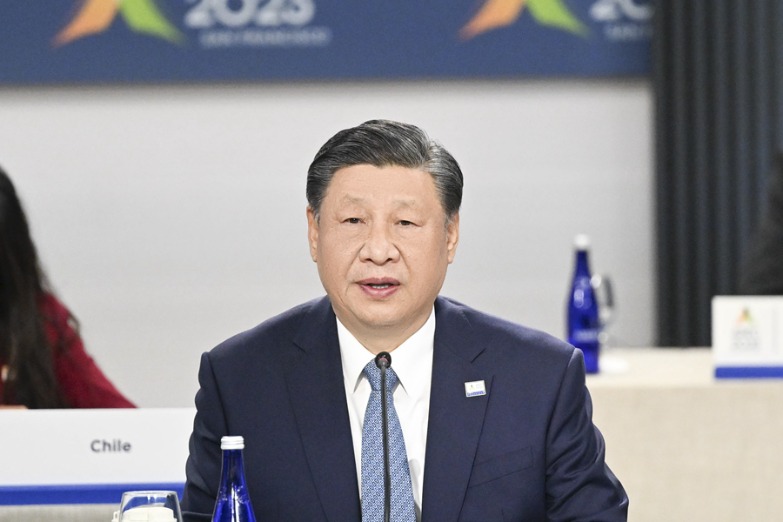
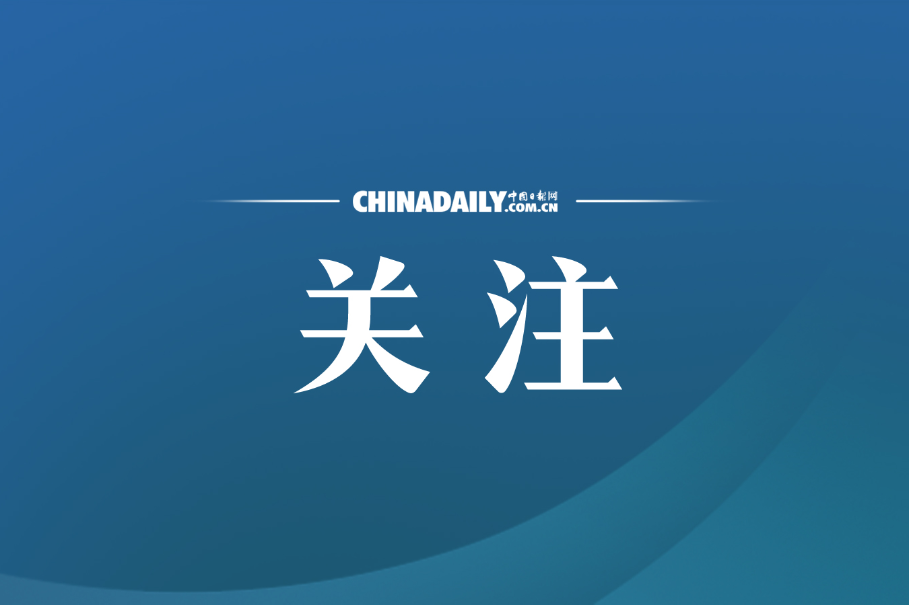
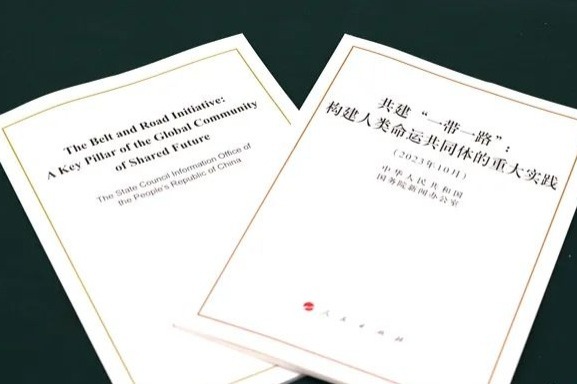
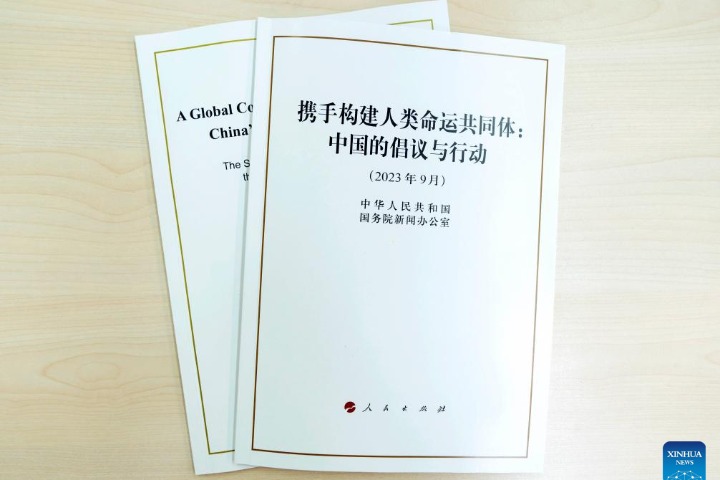
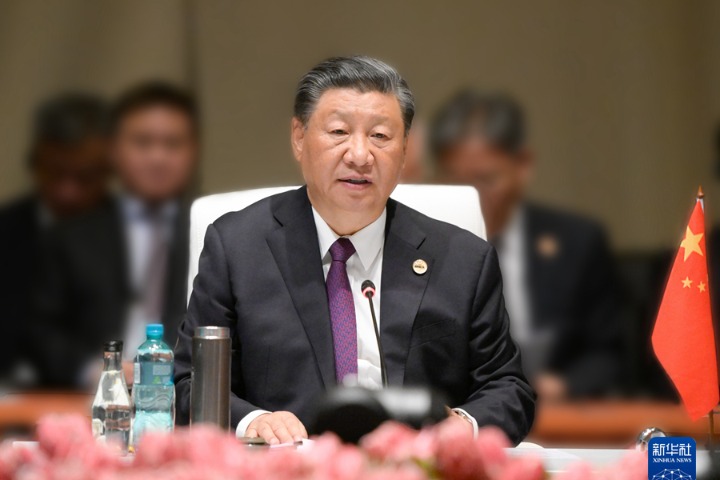



 英语点津微信
英语点津微信 双语小程序
双语小程序